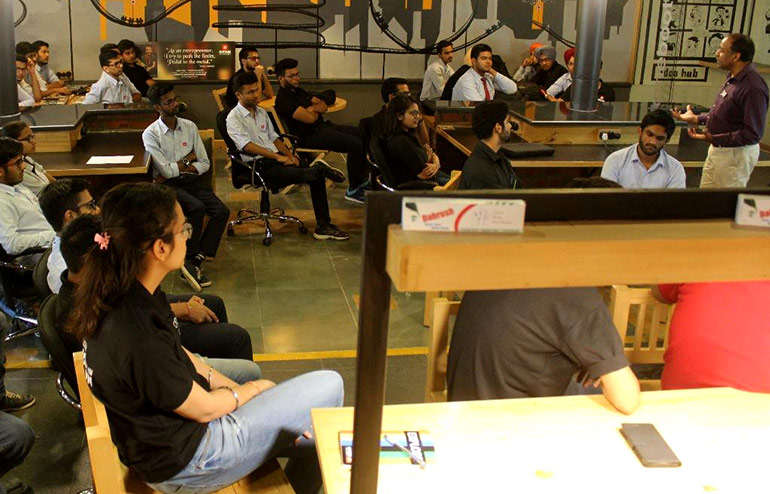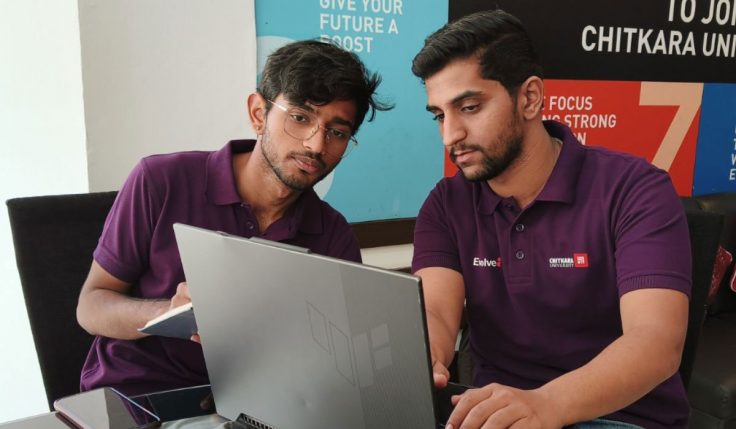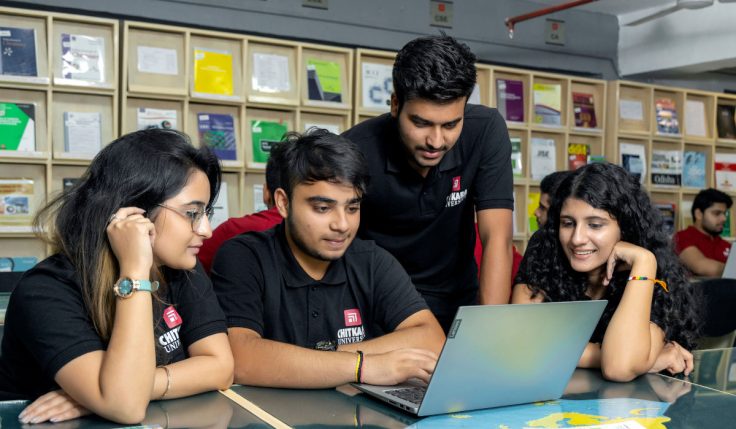Start-ups in any country need allied aid and support from academic institutions to foster into lucrative opportunities that enhance job creations. Entrepreneurship has always been a key component of the Indian business ecosystem. However, the present need is to come up with a sustainable model of development that is governed by a comprehensive incubation facility.
Unfortunately, modern day statistics suggest state that there is in fact a dip in the creation of new businesses and start-ups when compared to other countries in the global business ecosystem.
Several districts in India are now recognizing this gap in innovation and fostering opportunities for holistic entrepreneurship that promote faster job growth. However, the challenge remains that the pace of growth in entrepreneurial opportunities is not just slow, it is faulty as well. There is a massive saturation in terms of the concentration.
For example, majority of the new start-ups in India are either confined to Bangalore or Gurgaon. This trend can be attributed to the extensive infrastructural and financial support that is available at ease in these regions. Furthermore, these demographics demonstrate stronger customer-supplier relations. However, this heterogeneity is proving to be detrimental for innovative developments that expand across the Pan-India scale.
Consequently, business innovators are asking several pertinent questions regarding fostering entrepreneurial opportunities across a homogenous network. These include whether there is a spatial discrimination in terms of encouraging local entrepreneurship opportunities and what is the difference in response to physical and human resources that are available for entrepreneurial disposal.
Researches state quite the contrary in this regard. They suggest that the discrepancies in terms of geographic locations is not a consequence of entrepreneurial returns, but education levels and the quality of regional infrastructure. Both of these can be achieved through fostering innovative and research-driven abilities across universities.
Proper infrastructural support, along with academic prowess is paramount for promoting entrepreneurship, economic growth, and resultantly, job opportunities. This can be achieved through innovative educational solutions that paves way for skill development and dissemination of ideas. Educational institutes see students hailing from diverse socio-economic backgrounds. Thus, it becomes their responsibility to provide cohesive benefits and opportunities to these students who aspire to be business leaders of the future. This harnesses the growth and development of potential entrepreneurs.
Many future business leaders enter top management schools with the vision of building on their entrepreneurial acumen. However, many of them hail from non-business backgrounds, thus they lack the technical knowledge that is necessary to establish and build an entrepreneurial empire. This is where E-cells in colleges come in as they play a triggering role in generating the desired awareness, interest, and action that encourages innovation-driven ventures amongst students hailing from diverse socio-economic backgrounds.
Educational institutes across the country need to realize that there is no magic formula that can be applied on a Pan-India level to foster the development of entrepreneurial abilities. The idea is to formulate a collaborative process that involves equal efforts from academicians and policymakers.
Historically, there has been a certain sense of symbiosis between entrepreneurs and academicians. This can be attributed to the fact that most evolving education models are a carefully curated amalgamation of theoretical knowledge and practical experience. Deemed to be extremely essential for the long-term sustenance of any entrepreneurial venture, academicians are actively promoting skill development courses that are aimed towards uplifting businesses as per modern-day requirements.
For instance, B-schools across the country are offering specialized courses on contemporary technologies such as Big Data Analytics, Artificial Intelligence, Fintech, and Machine Learning among others. Acquainting entrepreneurs with these skills will ensure that their ventures are in sync with the constantly evolving dynamics of the business environment. They can inculcate the knowledge derived from these courses into their ideas and aim for more promising returns.
While members of the bureaucracy can focus on making the rural regions and tier 2 & 3 cities more competitive in terms of their infrastructure and governance, educational institutes can contribute towards the processes of skill development and incubating innovative ideas. By doing so, more entrepreneurial talents will be strengthened at a national level, thereby creating more lucrative job opportunities.
Educational institutions must thus actively seek to indulge in technology-driven solutions that can cater to innovative entrepreneurial opportunities. This, accompanied by solid digital literacy will ensure that the future of jobs is sufficiently secure. Furthermore, young entrepreneurs who possess the vision to establish a potential business empire will be provided with ample digital and intellectual support to turn their ideas into realities.
It is important to note that India’s strength in entrepreneurship is deeply rooted in the success of its small enterprises that are part of the larger global supply chain. This includes promoting innovative small business opportunities that are being incubated by women entrepreneurs also. In a lot of instances these women don’t get proper assistance structured thinking frameworks to scale. Education Institutes can help develop their vision and help scale their ventures to new heights.
Conclusively, the objective of educational institutions should be pro-entrepreneurial. They should focus on transmission of business knowledge across all strata of the demographic society, providing local skill development and reach out to develop local physical and human infrastructure.
India is a country wherein the majority of the population constitutes of youngsters who are beaming with ideas that can positively disrupt the business landscape. However, due to varied circumstances, they might not be able to avail the best facilities to substantiate their ideas. Academic institutions play a vital role in this aspect as they can bridge this gap between ideation and turning them into concrete and sustainable business ventures. The goal of nurturing promising innovation-driven entrepreneurial ventures can be met.






